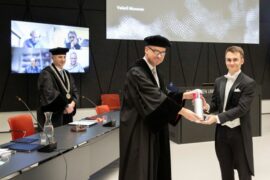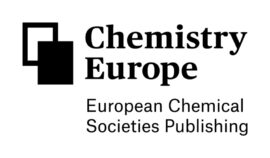“For outstanding achievements and leadership in the field of sustainable chemistry and catalysis research”, prof. Bert Weckhuysen (UU) is being honored the 2023 Chemistry Europe Award.
Chemistry Europe, an association of 16 chemical societies from 15 European countries publishing a family of high-quality scholarly journals and the magazine ChemistryViews, recognizes outstanding contributions to chemistry with its new Chemistry Europe Award. The award ceremony will be held in August, during the 49th IUPAC World Chemistry Congress (IUPAC|CHAINS2023) in The Hague, The Netherlands. Bert Weckhuysen will receive the award and give a lecture.

